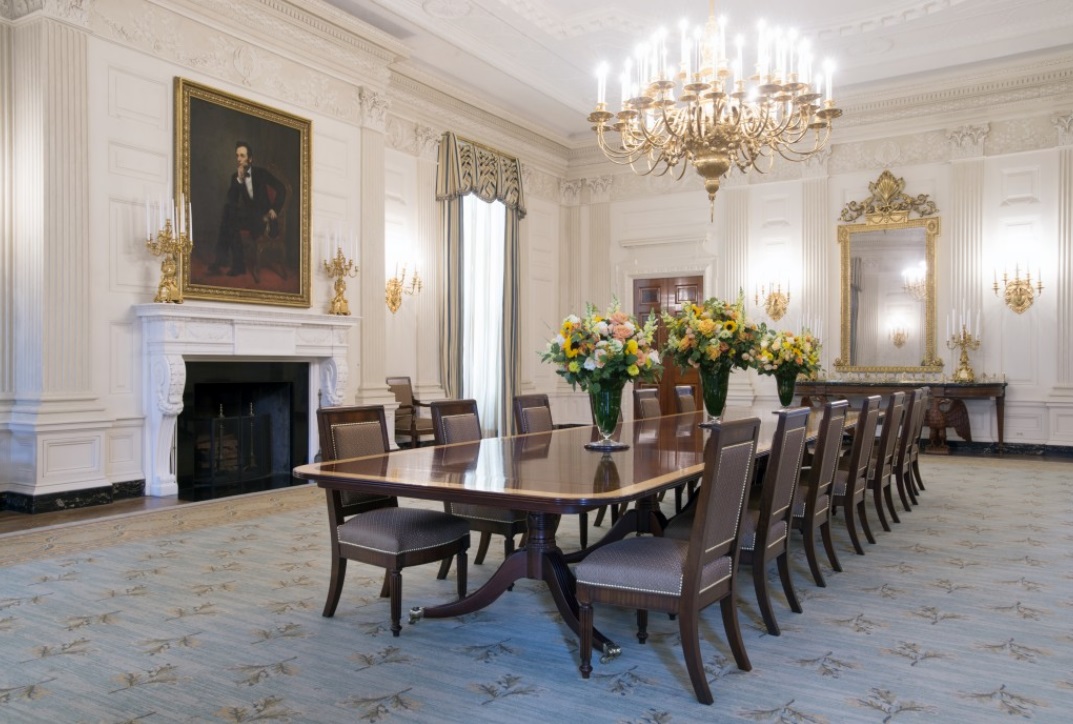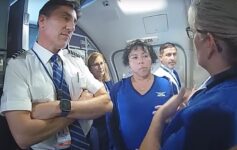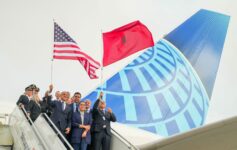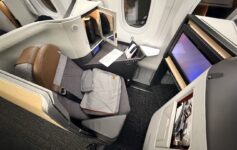Airline executives met with President Trump yesterday. You can read the sometimes humorous pool report here. Rather than focusing on the contentious travel ban, airline executives and the new Trump administration sought to find common ground.
United CEO Oscar Munoz issued the following statement after the meeting–
Our industry is joined by a common purpose of connecting people and communities. As one of this country’s largest employers, I was honored to represent our nearly 90,000 aviation professionals at United Airlines at this morning’s meeting. We share the president’s passion for the tremendous opportunity this country has and his commitment to protecting and creating American jobs. We look forward to working together with the President on the many initiatives and issues that will make America better and the U.S. aviation industry the best in the world. This includes modernizing our aviation infrastructure and cutting the red tape that gets in the way of our industry’s ability to deliver the best experience for our employees and customers.
During the meeting, Trump pummeled America’s aging air traffic control system:
“I hear we’re spending billions and billions of dollars, it’s a system that’s totally out of whack.” POTUS said of the air traffic control system.
POTUS inquired as to why airline corporations had allowed the government to invest in a faulty system. Southwest informed POTUS that the airlines are not “in control” of those decisions.
POTUS said that the system could potentially work better if FAA was run by a pilot because it is not currently, as a meeting attendee confirmed for him.
One positive development may be that Trump does give airlines a more vocal voice at the table in terms of modernizing more efficiently the nation’s air traffic control system.
Is privatization the answer? That’s what the airline executives called for and Trump seemed in agreement. I am not sure that is wise, but am open to exploring that option. The gridlock must be broken: the congestion problem in New York, for example, is unnecessary.
Trump and airline executives also expressed a shared goal for airport modernization, but the specifics of how to fund it were not discussed. Without money, we run into a Dulles problem.
Two Reason Why I Am Alarmed
Munoz stated, “We share the president’s passion for…protecting and creating American jobs.” That is code for attacking the Gulf Carriers. The President’s answer was somewhat reassuring–
I know you’re under pressure from a lot of foreign elements and foreign carriers. I’ve been hearing that a little bit. At the same time, we want to make life good for them also. They come with big investments. In many cases investments are made by their governments, but they are still big investments.
If he sticks to this line of thinking, I am fine with it — the Gulf carriers provide competition for both quality and price, leading to a better consumer experience. But that response doesn’t really fit in the populist “America First” mold, at least as previously articulated by Trump.
Second, Munoz stated that he is in agreement with Trump over “cutting the red tape that gets in the way of our industry’s ability to deliver the best experience for our employees and customers.” I interpret that to mean rolling back consumer protections for tarmac delays, fee disclosure, and post-purchase price increases. Perhaps I am reading too much into this, but airlines have decried these regulations as more harmful to consumers than helpful. I vehemently disagree.
Elaine Chao, the Labor Secretary under George W. Bush, wife of Senate Majority Leader Mitch McConnell, and current Transportation Secretary may take the Transportation Department in a very different direction than her predecessor. The DOT will almost assuredly become more “pro-business” but to what extent remains to be seen…it again plays into the brand of populism Trump will be pursuing. I trust that helpful consumer protections will not be rolled back.
CONCLUSION
Oscar Munoz certainly played nice, especially after ripping Trump days earlier. While his statement was predictable, hopefully the joint White House – airline focus can be on airport and air traffic infrastructure instead of fighting Gulf Carriers and cutting helpful red tape.





Munoz — and Ed Bastian — are characterizing Trump as being in support of their position on the Gulf carriers, even if it’s not clearly the case that he is. If they can paint the President’s position one way, if people internalize that, then it’s useful with DOT and other agencies. Historically getting a single sentence into the President’s State of the Union speech has been huge, because pointing to a President’s priorities is effective in lobbying the Executive Branch.
As for Air Traffic Control, privatization is merely what reform proponents refer to plans, there’s no sense in which there’s a current proposal for private ownership of ATC. Instead, there’s a proposal to separate FAA regulation from ATC implementation, spinning ATC off into a separate non-profit with a stakeholder board similar to the more effective and efficient NavCanada.
There are reasonable debates to be had about how well this approach will work, about likely outcomes, and whether this is the most effective thing that can be done to improve ATC. But the proposal decidedly isn’t for privatization.
On the ATC issue, I lived through ATC strikes in Germany — including by some who pull in over 800K EURO / year. Whatever this non-profit entity may resemble, we must ensure not only that cutting-edge technology is used but also that there are no-strike clauses (obviously, along with adequate protections like limiting overtime and ensuring a minimum staff level).
Sorry I meant to say above ‘merely what reform OPPONENTS use to refer to plans’ [it’s meant as a slur and to intentionally mischaracterize what’s being proposed].
Two comments:
One, there is no “money shortage” at IAD. The problem is how the MWAA spends the money they already collect. Example: 22 million passengers each pay a $4.50 passenger facility charge. (That’s the XF on your ticket receipt) That’s a bit shy of $100 million per year. That does not count any other fee revenue on your ticket ($3.90 per passenger plus 7.5% of the base fare) that the airport participates in but doesn’t get all of. With that kind of revenue stream, IAD should be able to have a new C/D terminal but somehow they can’t fund it. Hmmmm? Where does the money go???
Two, I find it somewhat humorous that the airline CEO’s still complain about having to compete with the ME3 carriers despite getting millions in subsidies themselves AND providing a crappy product. Yesterday, I flew from DFW to DCA on an old US Airways A321. There was no coat closet in first class. There were no power outlets in first class. The wifi barely worked. The meals were unknown to the flight attendant because someone ‘forgot’ the paperwork. There were no limes on board for my sparkling water. The first class wine was so cheap that it can be bought for $6 a bottle at 7-11. They boarded well before scheduled time so there was no overhead space left for F passengers. Yes, I know first world problems but how in the world can you compete for passengers when you offer a product like this? and don’t care that you offer a crappy product?
“I trust that helpful consumer protections will not be rolled back.” Ha!
Trump is such an idiot…
The major airlines are right to not be in favor of middle eastern carriers such as emerates and etihad. Their governments subsidise the company therefore they can fly an empty 777 and at a lower cost because it doesnt matter to them. Not a very fair stance.